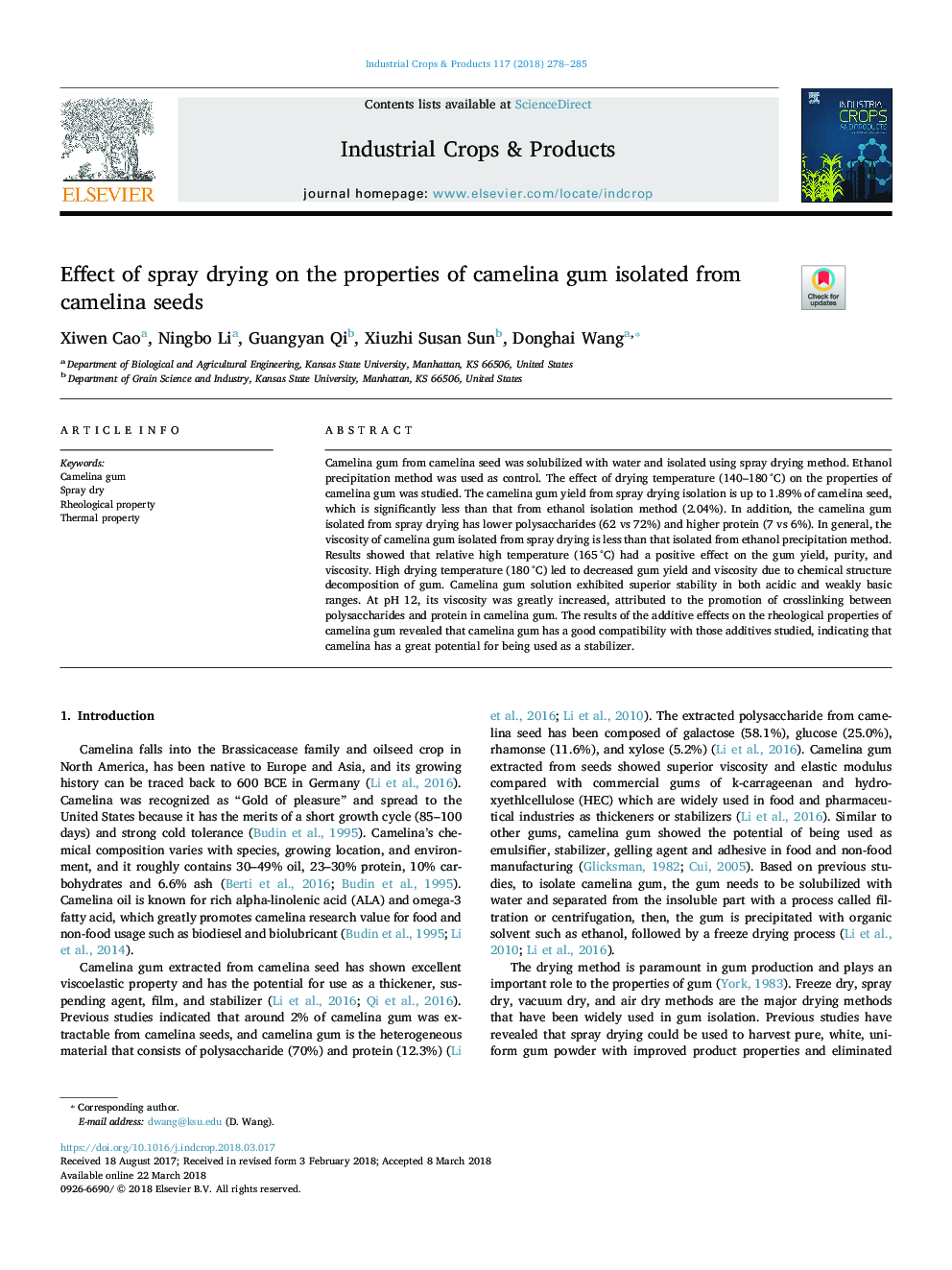| Article ID | Journal | Published Year | Pages | File Type |
|---|---|---|---|---|
| 8880179 | Industrial Crops and Products | 2018 | 8 Pages |
Abstract
Camelina gum from camelina seed was solubilized with water and isolated using spray drying method. Ethanol precipitation method was used as control. The effect of drying temperature (140-180â¯Â°C) on the properties of camelina gum was studied. The camelina gum yield from spray drying isolation is up to 1.89% of camelina seed, which is significantly less than that from ethanol isolation method (2.04%). In addition, the camelina gum isolated from spray drying has lower polysaccharides (62 vs 72%) and higher protein (7 vs 6%). In general, the viscosity of camelina gum isolated from spray drying is less than that isolated from ethanol precipitation method. Results showed that relative high temperature (165â¯Â°C) had a positive effect on the gum yield, purity, and viscosity. High drying temperature (180â¯Â°C) led to decreased gum yield and viscosity due to chemical structure decomposition of gum. Camelina gum solution exhibited superior stability in both acidic and weakly basic ranges. At pH 12, its viscosity was greatly increased, attributed to the promotion of crosslinking between polysaccharides and protein in camelina gum. The results of the additive effects on the rheological properties of camelina gum revealed that camelina gum has a good compatibility with those additives studied, indicating that camelina has a great potential for being used as a stabilizer.
Related Topics
Life Sciences
Agricultural and Biological Sciences
Agronomy and Crop Science
Authors
Xiwen Cao, Ningbo Li, Guangyan Qi, Xiuzhi Susan Sun, Donghai Wang,
